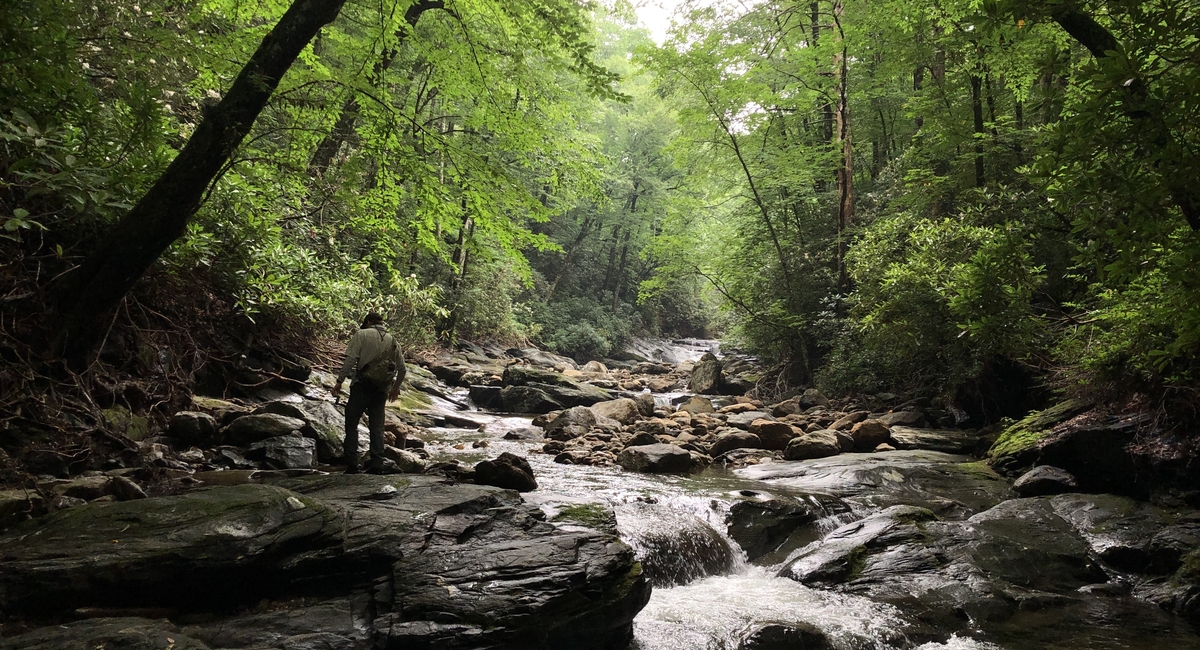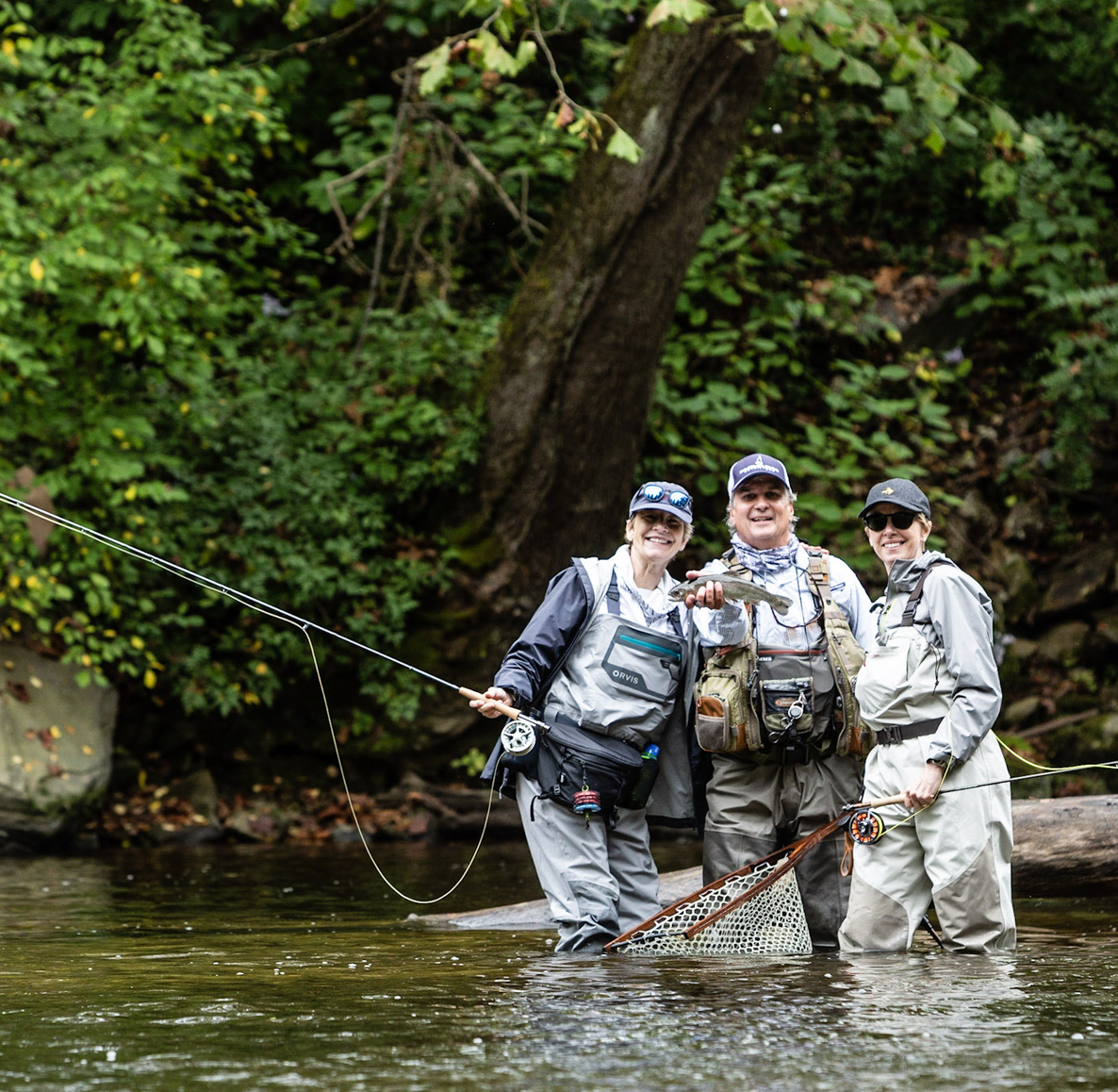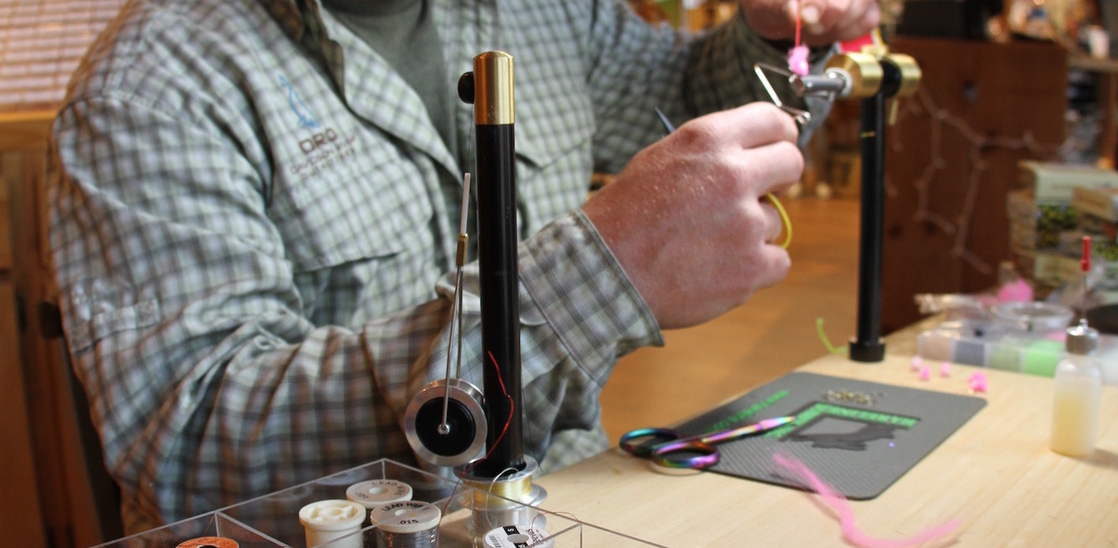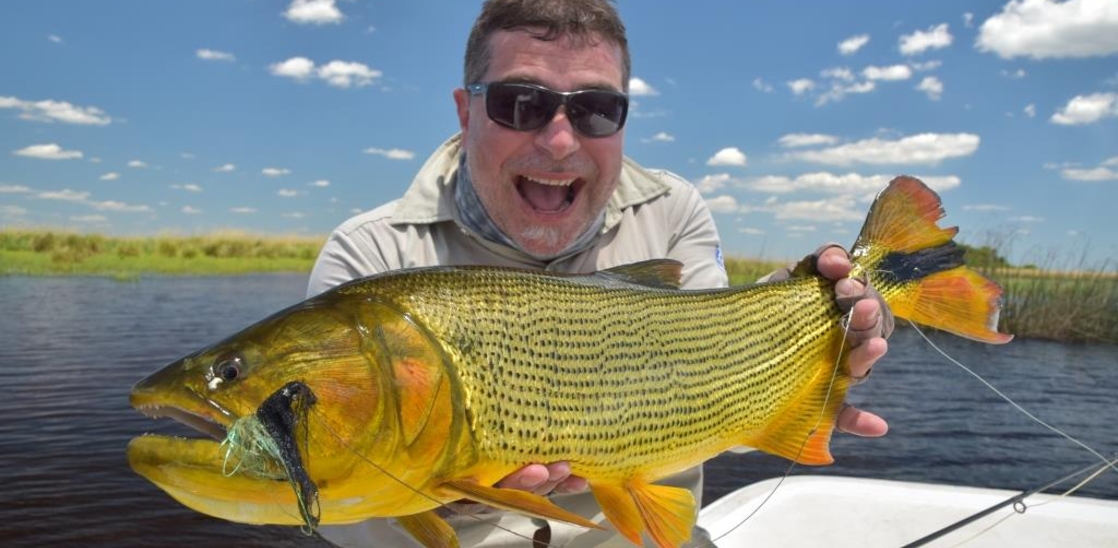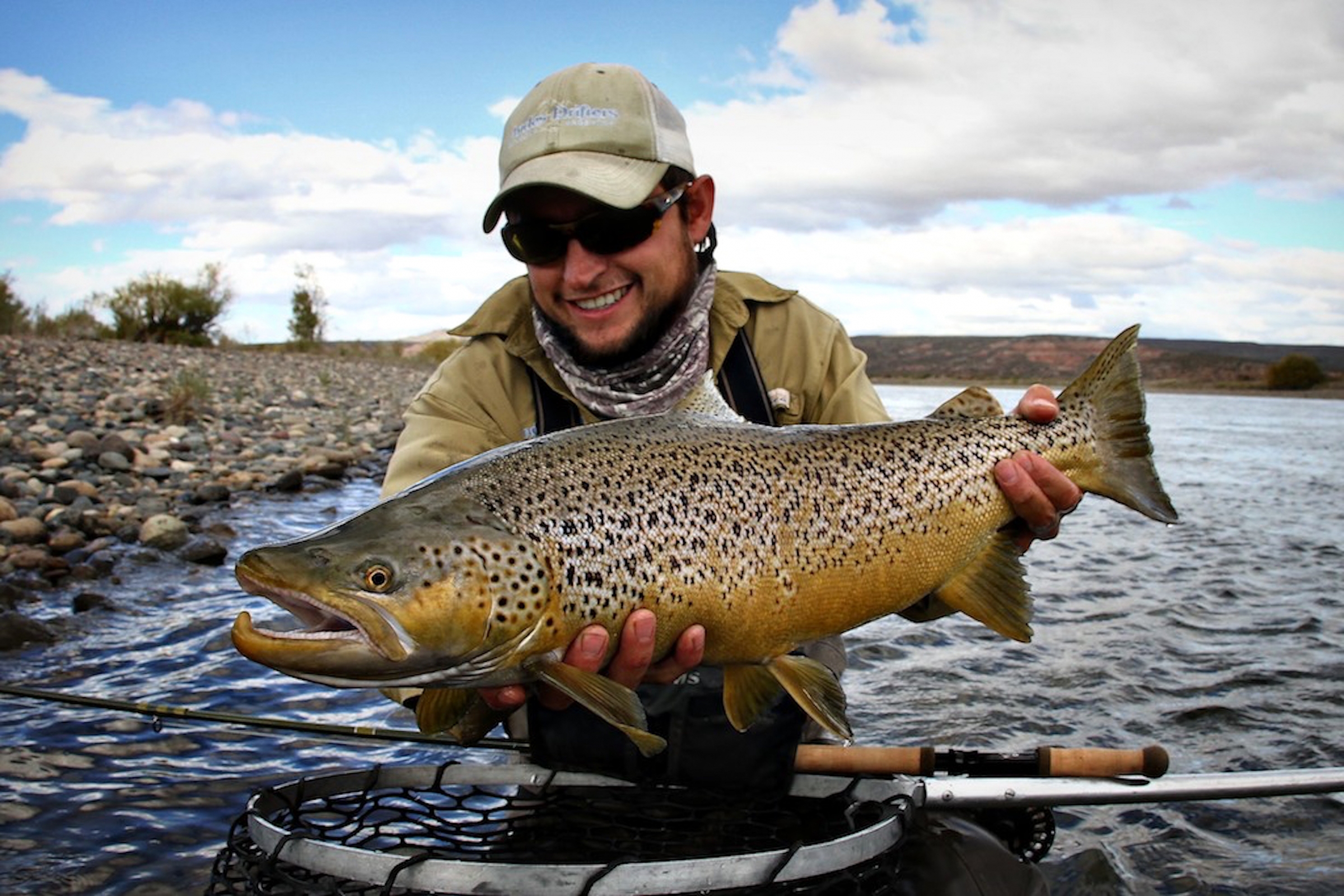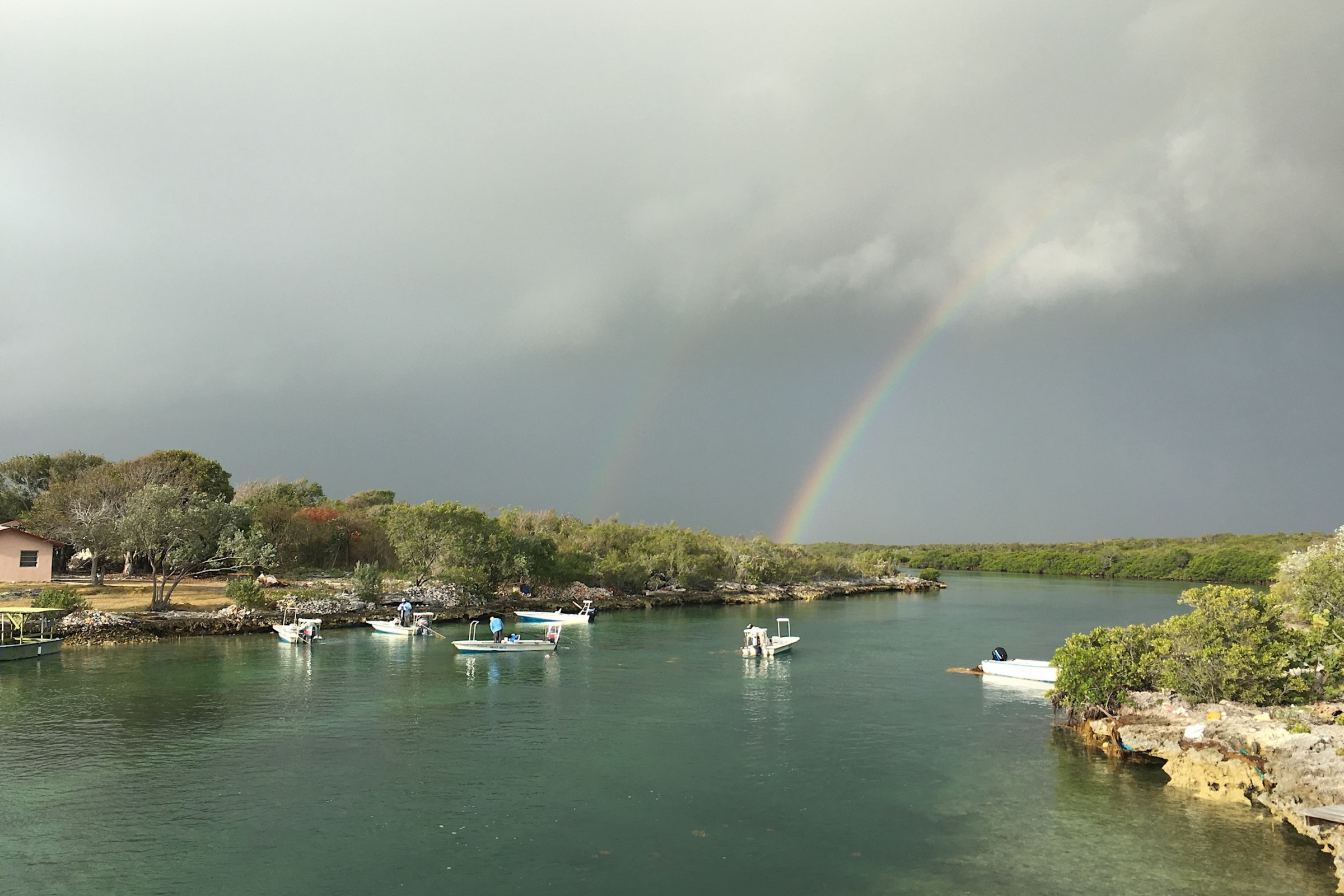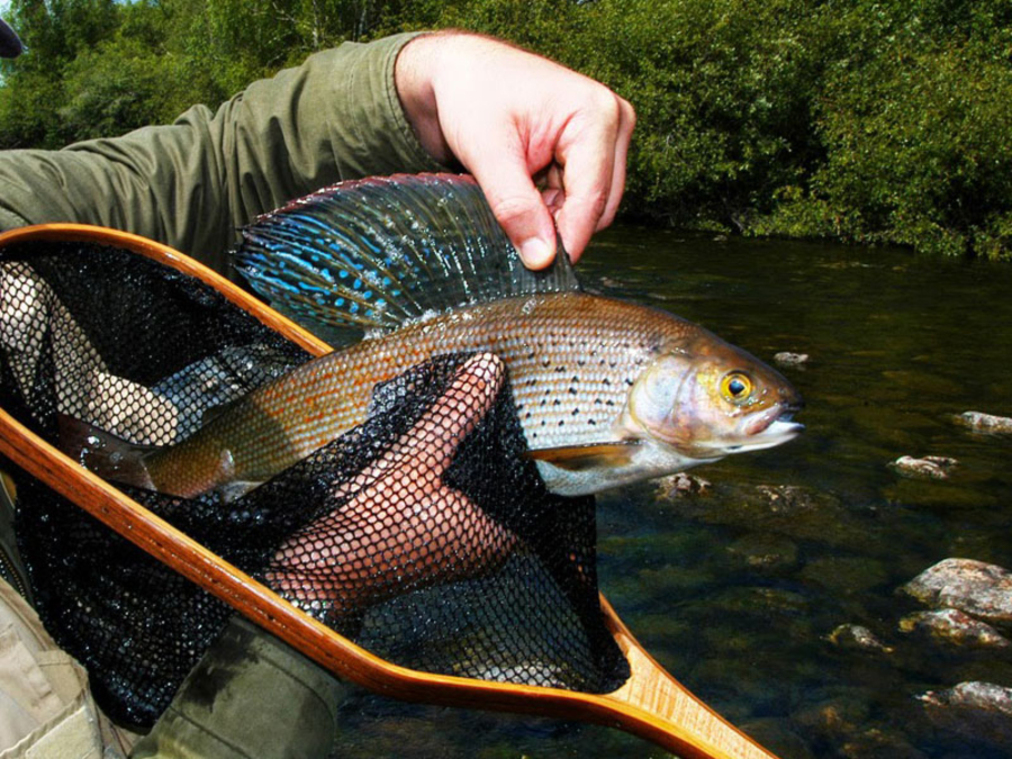Trout love cold, clean water; they need it to survive. As the water temperature increases the amount of dissolved oxygen the water can carry decreases. This will mean that after the temperature threshold of about 68 degrees F, the water no longer holds enough oxygen for a trout to recover after a high exertion activity. Therefore trying to release a trout in warm conditions after you have hooked and fought that fish is equivalent to you running a series of sprints and then trying to breathe through a plastic coffee stirrer or finishing a marathon at the basecamp of Mt. Everest.
Here are some important things to consider when fishing in warm weather:
- Carry a Thermometer. Check the water temperature before you begin fishing and periodically while you are fishing to ensure that the water stays within a range suitable for the fish. Below 65 degrees F, fish are happy and healthy. Between 65 and 68 degrees F, fish are beginning to get stressed but are still able to be caught and released safely if done properly. Above 68 degrees F, it's time to pack it in for the day and go for a swim or head home and tie some flies.
- Fish heavier tippet. By fishing a more stout leader and tippet, it allows you to play fish faster without losing them. The faster the fight the less time that fish is exerting which leads to a faster recovery.
- Fish barbless flies. You should be doing this anyway and, if you are playing fish correctly, it shouldn't make a difference in your catch rate. This helps to reduce stress on fish and makes it easier to remove it from your arm (or head or leg or ...) when your buddy has had one too many.
- Skip the Pictures. We all love to have proof of the fish caught and memories made through our fishing travels. However, removing fish from the water for any period will simply add stress to an already perilous situation for the fish. Save the picture-taking of fish for colder weather and instead focus on shooting all the other aspects of an outing that make it so special.
- The water doesn't cool off until the sun goes down. Many folks think that after the heat of the afternoon the water will be cool enough to fish but, this is often the opposite. The water heats up all day and will often only cool to fishable temperatures after a full evening of no sun and lower air temperatures.
Keeping these ideas in mind will help to secure healthy and happy populations of fish for yourself and others in the future.
Thanks,
Jason


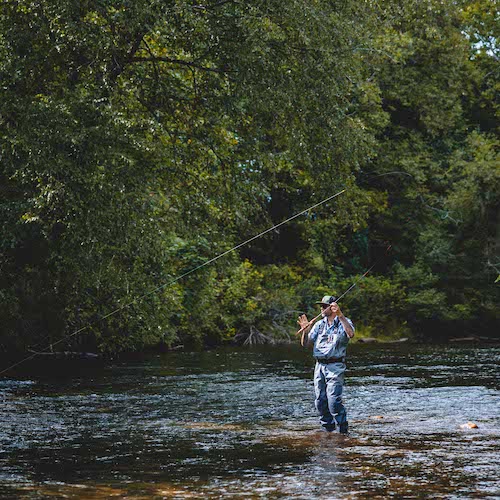 Stream Report
Stream Report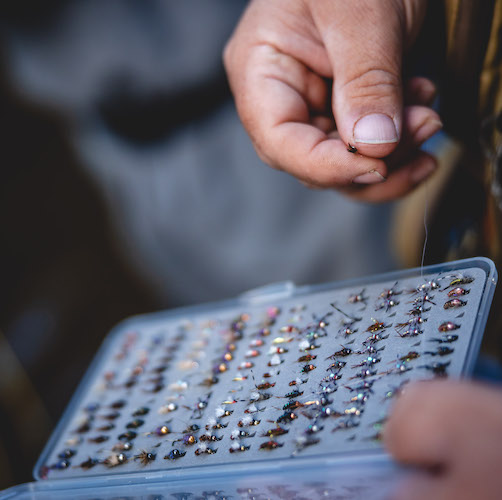 Seasonal Hatches
Seasonal Hatches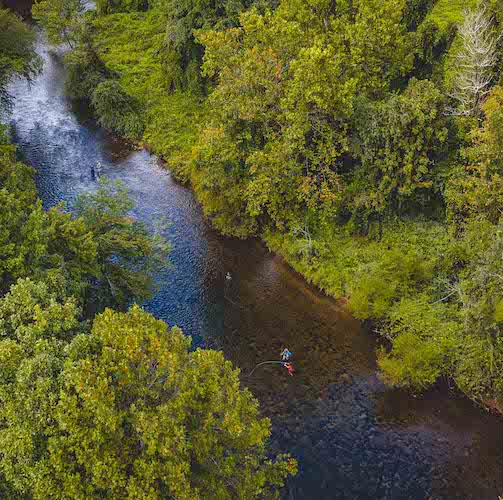 Stream Guide
Stream Guide